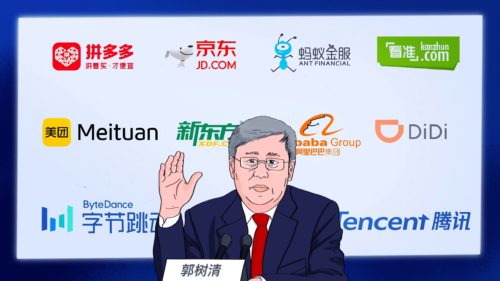Music streaming: Tencent owns 10 percent of Spotify

Tech in Asia reports on Tencent’s latest global play: a deal to invest in the popular Swedish music streaming startup Spotify, which has 140 million users around the world, excluding China, where the service is not available. Spotify will also take a stake in Tencent Music Entertainment, the Shenzhen-based giant’s music subsidiary.
Tencent Music Entertainment runs three music streaming services in China and another outside the country, boasting a combined 600 million active users, or more than four times Spotify’s reach (though Spotify has far more paid subscribers). Although the terms of the deal were not disclosed, the Financial Times (paywall) cites sources who say the companies will swap just under 10 percent of each other’s equity.
EARLIER THIS WEEK:
Bitcoin continued its wild ride this week with a new record high of more than $20,000 on some exchanges (nearly double last week’s new high) before plunging several thousand dollars. But Pan Gongsheng 潘功胜, deputy governor of the People’s Bank of China, justified the closure of the country’s bitcoin exchanges in September, and predicted the virtual currency’s demise.
Europe’s largest toymaker scored a major victory against two Chinese companies that sold similar-looking building blocks under the name Bela. The ruling followed another win in a Beijing court earlier this year that recognized Lego’s logo and name as “well-known trademarks” in China.
A new ban on plastic garbage is creating major headaches for the global recycling industry, which counted on China to process the waste materials into other products. However, the ban is welcome news to U.S. companies such as Dow and DuPont, which will be well positioned to fill China’s anticipated demand for new plastic.
The new Starbucks Reserve Roastery in Shanghai is the first of the chain’s upscale cafés to launch outside the United States, and at 2,700 square meters, it also boasts the distinction of being the world’s largest Starbucks. The opening of the store highlights just how far the Seattle-based coffee purveyor has come since it first announced plans to expand into the tea-loving Chinese market nearly two decades ago.
More news from today
- China’s export machine speeds up again
China’s double-digit trade jump pairs global and domestic demand / Bloomberg
“China’s trade engine remained in high gear with a surprise export surge accompanied by further acceleration in imports that signals robust demand in the domestic economy.” - Cashless in Hong Kong
Over 2,500 Hong Kong taxi drivers sign up to cashless WeChat Pay and Alipay / SCMP - Dodgy banking
China’s regulator slaps nation’s biggest fine on Guangfa Bank for fraud, and for covering it up / SCMP
The regulator described it as “one of the most blatant examples of ‘criminal collusion’ between a bank’s employees with outsiders, cutting across different companies, industries and markets.” - Aviation: New planes
Largest amphibious aircraft set for maiden flight / China Daily - Chinese mobile phones abroad
Xiaomi’s India unit starts to make profit after three years / TechNode
A surge in sales underscores “an increasing preference for Chinese phones over those produced by local rivals.”





